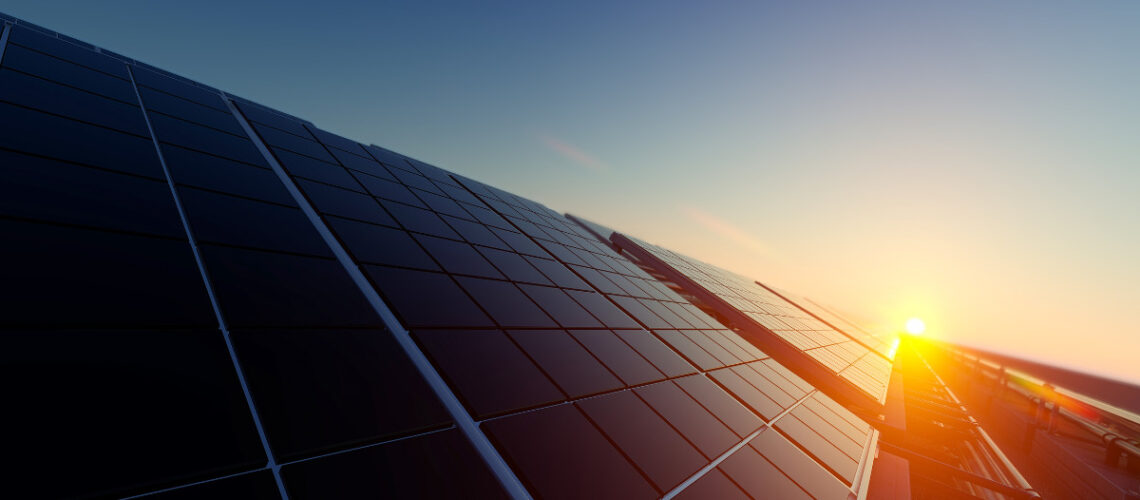With increasing environmental consciousness, the real estate industry has undergone a significant transformation. Sustainable homes have become the new norm, reflecting a growing desire to reduce our carbon footprint and embrace eco-friendly living.
In recent years, there has been a remarkable shift in consumer preferences towards sustainable living. People are increasingly aware of the ecological footprint associated with traditional housing and are seeking alternatives that align with their values. Sustainable homes, also known as eco-friendly homes or green homes, have become the epitome of this shift. These homes are designed and constructed to minimize their impact on the environment, focusing on energy efficiency, resource conservation, and reduced carbon emissions.
This blog post explores the rise of eco-friendly real estate, highlighting the benefits, trends, and considerations that come with this sustainable shift.
The Green Revolution in Real Estate: Sustainable Home Design
The green revolution in real estate is gaining momentum as individuals and communities increasingly prioritize sustainability in their housing choices. Eco-conscious buyers are seeking out properties that not only reduce their environmental impact but also offer energy-efficient and cost-effective solutions. Developers are responding to this demand by integrating eco-friendly features into their projects.
One of the cornerstones of eco-friendly real estate is sustainable home design. Modern sustainable homes are built with innovative materials and technologies that enhance energy efficiency and reduce waste. Features like solar panels, energy-efficient appliances, and eco-friendly insulation contribute to lower utility bills and a reduced carbon footprint. These homes are designed to blend seamlessly with their natural surroundings, promoting harmony with the environment.
Energy Efficiency: A Game Changer
Energy efficiency is at the forefront of sustainable real estate. Smart technologies, such as programmable thermostats and energy-efficient lighting, allow homeowners to monitor and optimize their energy consumption. The integration of renewable energy sources like solar panels not only reduces electricity bills but also lowers greenhouse gas emissions. This shift towards sustainable energy solutions benefits both homeowners and the planet.
Sustainable Communities: A Growing Trend
Beyond individual homes, the concept of sustainable communities is gaining traction. These planned neighborhoods prioritize green spaces, public transportation, and walkability. By reducing the need for personal vehicles and promoting community gardens, sustainable communities foster a sense of togetherness while minimizing environmental impact. Such developments also often incorporate rainwater harvesting and greywater recycling systems, further conserving valuable resources.
Green Certifications: Assurance of Sustainability
To ensure that a property aligns with eco-friendly standards, green certifications have become increasingly important. Certifications like LEED (Leadership in Energy and Environmental Design) and ENERGY STAR provide a clear indication of a home’s sustainability credentials. Homebuyers can rely on these certifications to make informed decisions about their investments, knowing that they are contributing to a more sustainable future.
Financial Benefits of Sustainable Real Estate
Investing in sustainable real estate presents a dual benefit, reaping financial rewards alongside environmental gains. One of the most immediate advantages comes in the form of reduced utility bills. Energy-efficient homes are designed to maximize energy conservation, resulting in lower monthly expenses for heating, cooling, and electricity. This ongoing savings can significantly offset initial investment costs.
Furthermore, governments and local authorities often offer tax incentives and rebates for sustainable home features. These financial perks can include tax credits for solar panel installations, energy-efficient appliances, and even property tax reductions for eco-friendly construction. These incentives not only provide immediate financial relief but also contribute to the long-term affordability of sustainable homeownership.
In addition, sustainable homes tend to appreciate in value at a higher rate than traditional properties. The growing demand for eco-friendly living spaces, coupled with an increasing awareness of environmental issues, has led to a surge in the popularity of sustainable real estate. This heightened demand translates into higher property values, making sustainable homes a lucrative investment in the long run.
Lastly, the market appeal of sustainable homes is broad and diverse. Environmentally conscious buyers are actively seeking out properties that align with their values. This broadens the potential pool of interested buyers, often leading to quicker sales and, in some cases, competitive bidding that can further drive up the property’s value. Ultimately, investing in sustainable real estate not only contributes to a more sustainable future but also offers a sound financial strategy for homeowners.
A Greener Tomorrow through Sustainable Homes
The rise of eco-friendly real estate is not just a passing trend; it represents a fundamental shift in the way we think about our homes and communities. As the world grapples with climate change and environmental degradation, the real estate industry has a vital role to play in mitigating these challenges. Sustainable homes and communities offer a path towards a greener, more sustainable future.
In summary, sustainable homes are no longer a niche market but a mainstream choice for homebuyers and developers alike. They offer a myriad of benefits, from reduced energy costs to a reduced carbon footprint, and they contribute to the creation of sustainable communities that promote a healthier and more harmonious way of living. With green certifications providing assurance and financial incentives sweetening the deal, the eco-friendly real estate market is set to continue its growth and positive impact on both homeowners and the planet.
Investing in sustainable real estate is not just about buying a home; it’s about investing in a sustainable future for generations to come. As more people make the shift towards eco-friendly living, the real estate industry’s focus on sustainability is not just a trend but a necessity in today’s world. So, whether you’re a homebuyer or a developer, consider the eco-friendly options available and be a part of the movement towards a more sustainable and environmentally conscious future. Together, we can build a world where sustainability and real estate coexist harmoniously, creating a better tomorrow for all.

